Jetpack compose
You can use the LinearProgressIndicator or CircularProgressIndicator
// Indeterminate
CircularProgressIndicator()
LinearProgressIndicator()
// Determinate (specify the progress value with a fixed value or animateFloatAsState to animate it)
CircularProgressIndicator(progress = ..)
LinearProgressIndicator(progress = ..)
Example:
var progress by remember { mutableStateOf(0.1f) }
LinearProgressIndicator(
backgroundColor = Color.White,
progress = progress,
color = Blue
)
Material Components Library
You can use the LinearProgressIndicator with the android:indeterminate="true" attribute:
<com.google.android.material.progressindicator.LinearProgressIndicator
android:indeterminate="true"
app:indicatorColor="?attr/colorPrimary"/>

You can also use different colors using:
<com.google.android.material.progressindicator.LinearProgressIndicator
android:indeterminate="true"
app:indicatorColor="@array/progress_colors"
app:indeterminateAnimationType="contiguous"/>
with:
<integer-array name="progress_colors">
<item>@color/...</item>
<item>@color/....</item>
<item>@color/....</item>
</integer-array>

You can also use the CircularProgressIndicator component to have a circular progress indicator:
<com.google.android.material.progressindicator.CircularProgressIndicator
android:indeterminate="true"
app:indicatorColor="?attr/colorPrimary"/>

Note: It requires at least the version 1.3.0-alpha04
AppCompat
You can use a ProgressBar with an AppCompat style.
Just add this in your layout:
<ProgressBar
style="@style/Base.Widget.AppCompat.ProgressBar"
android:layout_width="match_parent"
android:layout_height="wrap_content"
android:indeterminate="true"
android:visibility="visible" />
If you would like an Horizontal progress bar use:
<ProgressBar
style="@style/Base.Widget.AppCompat.ProgressBar.Horizontal"
android:layout_width="match_parent"
android:layout_height="8dp"
android:layout_marginTop="24dp"
android:indeterminate="true"
android:visibility="visible" />
They follow the official material guidelines.


